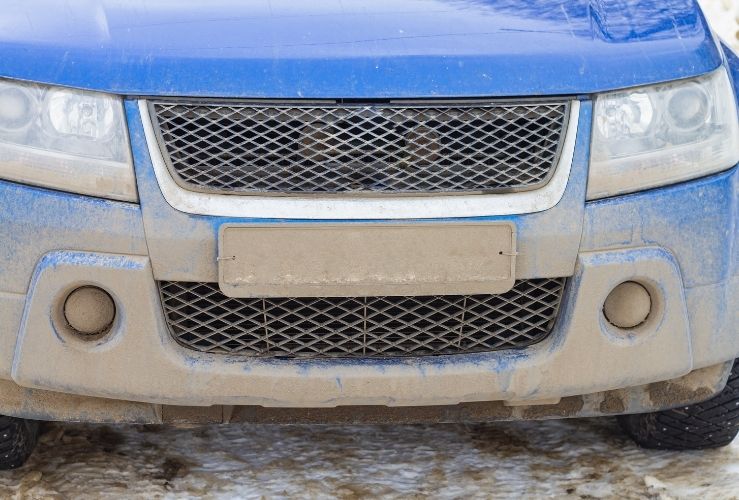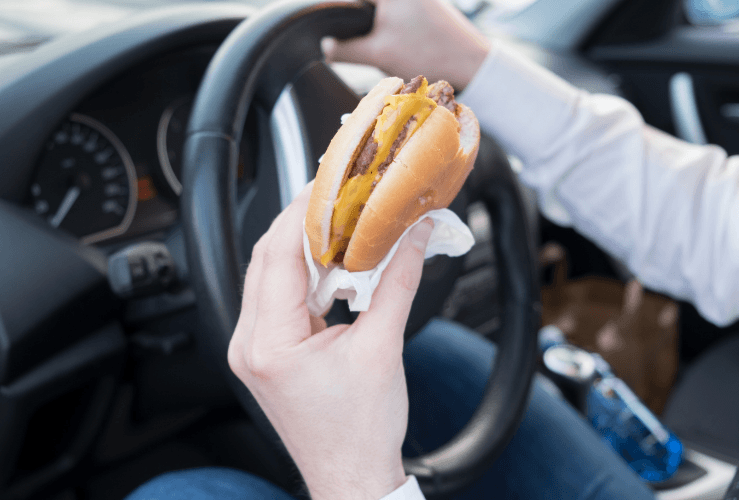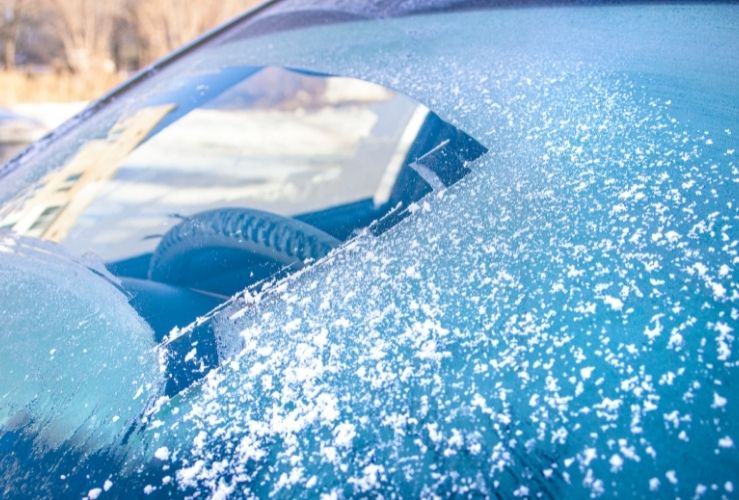We all know that driving in the UK comes with its own set of rules and regulations that we all should pay attention to, but there are a few other driving offences which you may not be aware of. Have you ever wondered whether it is legal to drink water while driving, for example?
It isn’t always totally straight forward to get your head around the Highway Code – that’s why around 54% of us don’t pass our driving test on the first attempt, according to DVSA stats 2019/20.
Driving without consideration for other road users is a sure-fire way to attract the wrong kind of attention when behind the wheel, and it’s especially important to think about the most vulnerable road users, such as cyclists, motorbikes, horses, and pedestrians.
There’s plenty of other things you should also consider when using our roads safely, though – at Start Rescue, we’ve been looking into the offences that some drivers just aren’t aware of.
Let’s look at the driving offences that you may never have known about. Read on for our top tips on how to avoid putting other road users in danger, as well as avoiding hefty fines and penalties…

What are the rules on driving through standing water?
Getting splashed by cars is something that no pedestrian wants to experience. If you’ve ever been walking down the street, minding your own business, and had a huge wave of dirty puddle water absolutely soak you, we’re sure you’ll understand.
But not only can this be unpleasant for pedestrians, it’s an offence for drivers too.
Splashing pedestrians is illegal under Section 3 of the Road Traffic Act for careless, aggressive, or inconsiderate behaviour, and offenders can be slapped with a fine of up to £5,000.

What are the rules on dirty numberplates?
In the depths of the Winter months - when the nights are long, the roads are salty, and its impossible to keep your car clean – this is an easy one to fall foul of.
You should always make sure your front and rear number plates are clean and visible to other road users or risk a £1000 fixed penalty notice.
Paying £10 at the local hand car wash suddenly sounds more reasonable, considering…
What are the UK rules on incorrect number plate spacing or font?
Just like a filthy numberplate can land you in trouble, an incorrect one can too.
While some of us prefer to space their combination of characters a little differently to the norm, the law requires the spacing to match a certain set of rules. Likewise, the correct ‘Charles Wright’ font should also be displayed on all UK numberplates, with ‘show plates’, misspaced or tinted numberplates all risking the same £1000 fine.
What are the rules on warning drivers of speed traps?
You might think you’re being a good Samaritan by giving oncoming drivers a heads-up to check their speed ahead of an approaching fixed or mobile speed camera, but the Highway Code disagrees.
In 2017, it became an offence to warn other drivers of speed traps in the UK, with drivers risking a fine or fixed penalty notice if caught.
The new rule is thought to prevent other road users from becoming confused or dazzled in the process – and after all, the cameras are there for a reason.

What are the rules on eating while driving?
Eating and drinking while driving in the UK has long been a hot topic with many road users – and one which may be overdue a spot of motoring myth busting.
While we all know and understand the dangers of getting behind the wheel after drinking alcohol, what about soft drinks and snacks while on the road?
An easy rule to follow is you should avoid anything that distracts your attention from the road ahead, and other road users – and eating and drinking certainly falls into that category.
You may risk a penalty for driving without due care and attention, which could include £100 fine and three points on your licence.
What are the rules on beeping your horn?
Here’s one we’ve all likely done at some point – and most of the time, sounding your vehicle’s horn is the right thing to do if you’re warning other road users of your presence.
What you may not know is that using your horn without a valid reason while in residential areas between the hours of 11pm – 7am could land you with a £30 fixed penalty notice.
What are the rules on middle-lane hogging?
An offence that often infuriates drivers across the UK’s motorway network is middle-lane hogging.
The highway code says you should always keep in the left lane unless overtaking and, if you are overtaking, you should return to the left lane when it is safe to do so.
Middle-lane hogging is a definite hot topic at the moment, with offenders risking £100 fine and three points on their licence.
What are the rules on driving with frosted or icy windows in the UK?
In a rush on a cold morning? Don’t be tempted to start driving until you can see where you’re going. Rule 229 of the Highway Code stipulates all snow and ice must be cleared from your windows before you set off.
Get caught and you’ll risk a £60 fine and three points on your licence for using your vehicle in a dangerous condition.
What are the rules on stopping on the hard shoulder on UK roads?
Other than in an emergency, or in the event you’re instructed to by the Police, traffic officers or road signage, you shouldn’t stop on the hard shoulder of the motorway or dual carriageway – stopping without good reason can carry a fine of £100 and three penalty points.
If you do need to stop for any of the reasons previously mentioned, we recommend you move over as far left as possible, and switch on your hazard warning lights.
If safe to do so, exit your vehicle using the door furthest from moving traffic and stand behind a barrier or up an embankment, to the rear of the vehicle.
Breaking down on the motorway can be a particularly unpleasant experience but ensuring that you have suitable breakdown cover in place, will help to get you the help you need in any such incident.





